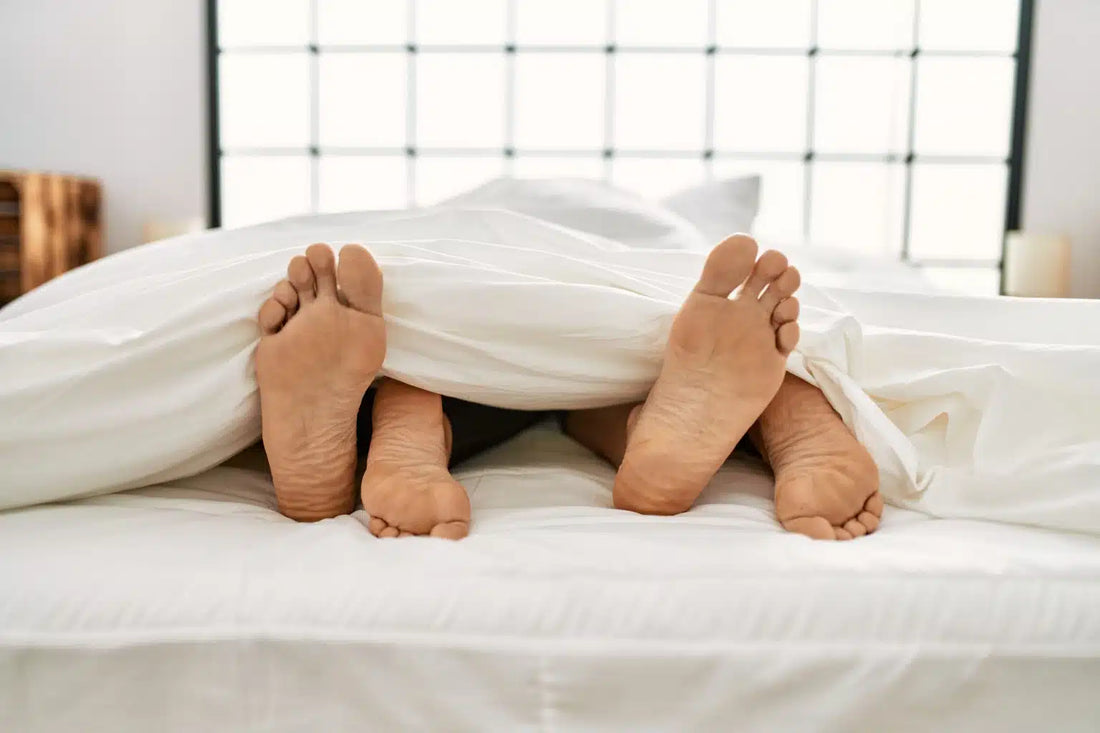Menopause and Sex: What to Know


For women going through the menopausal transition, a romantic evening can be a source of stress due to sexual issues that can crop up during this time. While it is widely considered acceptable to discuss the sexual challenges men experience with age (and the ED medications they can use to correct those issues!), the discussion of sexual challenges in midlife women is curiously quiet.
In this blog, we’ll discuss the sexual changes women can experience during the menopause transition and potential strategies for restoring desire and vibrancy!
The Sexual Symptoms of Menopause No One Talks About
When premenopausal women think of “menopause,” they often think of symptoms such as hot flashes and night sweats. However, few are prepared for the sexual health effects of this life transition!
The truth is that many women experience a significant decline in sexual desire and function during menopause, to the point where it significantly influences their quality of life. Research shows that the most frequently reported sexual challenges experienced by menopausal women include:
- Low sexual desire (reported by 40-55% of menopausal women)
- Vaginal dryness (reported by 25-30% of menopausal women)
- Pain before, during, or after intercourse (reported by 12-45% of menopausal women)
- Other issues affecting the genitourinary system, such as recurrent urinary tract infections)
In other words, if you are a menopausal woman experiencing sexual challenges, you are not alone! If you’re experiencing one or more of these symptoms, it is no wonder sex can start to become a source of anxiety and dread. The good news is that it doesn’t have to be this way! Before we delve into some potential solutions, let’s discuss WHY these sexual symptoms occur during menopause. (Source)
What Causes These Symptoms?
Significant changes in sex steroid hormones play a role in the sexual difficulties many women experience during menopause.
The drop in testosterone that occurs during menopause, as a natural part of the aging process, is one reason why sexual desire can decline during this time. Androgens, like testosterone, may stimulate sexual desire by activating reward pathways in the brain controlled by dopamine. (Source)
In addition, the steep decline in estrogen levels that occur in menopause also causes libido to take a hit. Estrogen helps keep the vagina hydrated, lubricated, and flexible, so when estrogen is low, sex can be quite uncomfortable for women. (Source)
The vaginal wall can also thin during the menopausal years because of the loss of estrogen. Low estrogen leads to drier, thinner, and more fragile vaginal tissues. (Source)
Women’s body image can also suffer during the menopausal years as weight gain creeps on (for many women) and losing weight becomes more difficult. Add in changes in skin and hair appearance and the ageism against women that we see in our society, and it is no wonder women may no longer feel excited to have sex! Multiple studies confirm that a decline in body image is correlated with a decrease in sexual function in menopausal women. (Source, Source)
What Can You Do to Reignite Your Sexual Vitality in Menopause?
Fortunately, there are a growing number of options for ways to improve sexual vitality in menopause!
Hormone replacement therapy (HRT) has been found to improve sexual vitality in women going through menopause. For example, testosterone therapy increases sexual desire in menopausal women with low sexual desire. (Source)
Topical estriol, one of the forms of estrogen and another form of HRT, can improve thinning of vaginal tissues, potentially making sex more comfortable for menopausal women. Consider working with a hormone-savvy licensed healthcare provider who can guide you through the intricacies of HRT. (Source)
In addition to topical estriol, other topical lubricants, such as Good Clean Love Almost Naked, may also be helpful.
Maintaining a physical activity routine can help you maintain a healthy body composition that leaves you feeling confident and beautiful! Research shows that weight lifting during menopause increases muscle mass, giving you a toned look. Women who maintain a high physical activity level during menopause also experience higher self-esteem, which is vital for your sexuality! (Source, Source)
Finally, supplementing with dehydroepiandrosterone (DHEA) intravaginally or orally may also help support sexual vitality in women going through the menopause transition. DHEA is a precursor to estrogen and androgens, such as testosterone. Research shows that when DHEA is administered intravaginally, it can be converted into estrogen by enzymes inside the vagina, countering vaginal atrophy. In addition, oral DHEA supplementation may also aid libido in menopausal women. Together, these effects suggest that DHEA may be helpful for restoring sexual vitality during the menopausal years. (Source, Source)
The Bottom Line on Menopause and Sex
Navigating menopause is a tricky experience for many women, especially when sexual symptoms are involved. However, there are natural solutions that can help women feel more vital and sexier during this time! From topical estriol to maintaining an exercise routine, you have the power to take control of your sexual health!


